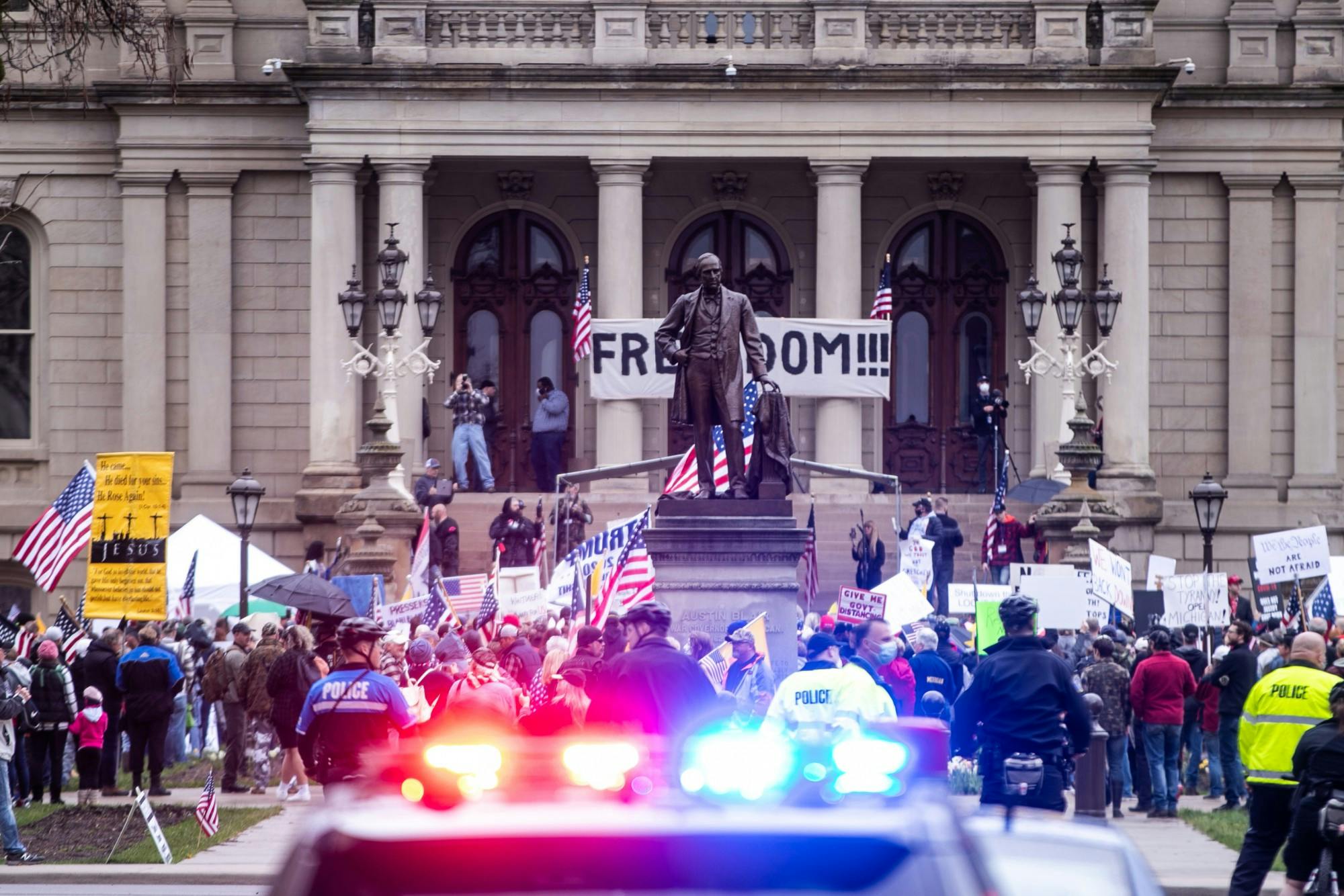The first hearing in the state legislature’s lawsuit against Michigan Gov. Gretchen Whitmer took place via Zoom Friday morning in the state Court of Claims.
In the complaint filed last week, the Republican-majority state Senate and House of Representatives argue Whitmer overextended her executive power in issuing a new state of emergency order following the termination of the prior one, which they claim she cannot do without the approval of the legislature.
Whitmer holds that she did not act out of her executive bounds, citing the 1945 Emergency Powers of the Governor Act, or EPGA, and the 1976 Emergency Management Act, or EMA, as providing a basis for her ability to issue new states of emergency without consulting the legislature.
Both the EPGA and EMA give the governor special powers in times of emergency. The EPGA authorizes the governor to proclaim a state of emergency, whereas the EMA provides additional powers to the governor regarding planning, response and recovery from disasters.
“Both of those authorizations contained particularized limits on the execution of the powers given within them,” said Michael Williams, an attorney representing the legislature. “The governor here, however, has tried to take the powers that are granted by those acts and leave the limits on the table.”
The EMA grants that a state of emergency shall continue until the threat or danger has passed, emergency conditions no longer exist or until the declared state of emergency has been in effect for 28 days. If the governor seeks to extend a state of emergency further, she must do so with approval from the legislature, according to the act.
“The provision, as you know, contemplates that declared states of emergency and disaster will last no longer than 28 days, absent an extension from the legislature,” Williams said. “At that point in time, the governor must terminate the declared state of emergency or disaster.”
According to Williams, Whitmer terminated her declared state of emergency on April 30 after the legislature declined an additional extension of her emergency powers. However, one minute later, the governor redeclared her state of emergency.
Williams argued the governor's actions defeated the acts of the legislature.
“The executive has actually seized the exercise of power that would ordinarily be reserved to the legislature itself,” Williams said. “This is not just about whether we agree with the manner in which a law has been executed, this is about her depriving us of the legislative tools that we could otherwise possess to help manage this pandemic.”
Whitmer’s legal team, however, argued the governor complied with the EMA when she terminated her stay-at-home executive order and claimed the governor still has a duty to issue executive orders if emergency conditions warrant them.
“Her duty to declare an emergency if the conditions require it persists,” said Christopher Allen, an attorney representing Whitmer. “There’s nothing in the text at all about the governor’s inability to continue responding if the disaster exists, and that’s, I think, part of the absurdity. … There’s no dispute that a disaster and an emergency exist, yet the legislature withheld.”
According to Allen, the EMA grants the governor the ability to terminate one state of emergency and declare another to begin the following day, so long as she continually perceives there to be an emergency.
Allen additionally stated the legislature intended the words of the EPGA to be interpreted broadly to effectuate its purpose.
“Just reading the plain language of the text in conjunction with the requirement the legislature put on courts to read its plain language broadly gives us the answer about the governor’s authority under the EPGA,” Allen said.
Williams, however, said Whitmer has construed the EPGA too broadly and alleged the act is not applicable in regards to the ongoing coronavirus pandemic.
“The statewide declaration of the scale that we’ve seen through COVID-19 is simply not the type of situation that the EPGA was meant to address,” Williams said. “So, the EPGA should have never been triggered here, at all. It’s only the EMA that really is meant for the governor to take action as to those sorts of circumstances.”
Presiding Judge Cynthia Stephens stated she will deliver her ruling in writing, which she said “will certainly not be the last word” as the case is expected to make its way to the state Supreme Court.
Support student media!
Please consider donating to The State News and help fund the future of journalism.
Discussion
Share and discuss “Court hears arguments in lawsuit filed against Gov. Whitmer by Michigan legislature ” on social media.








